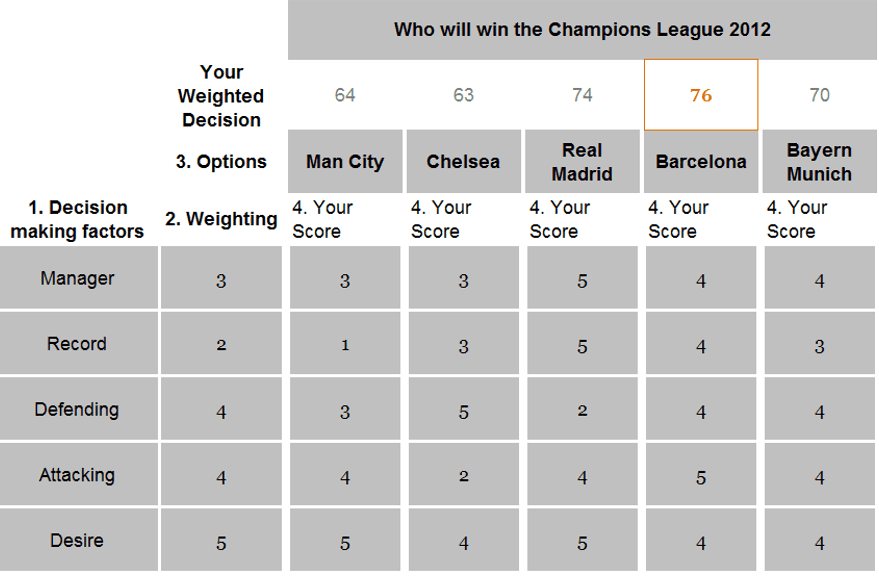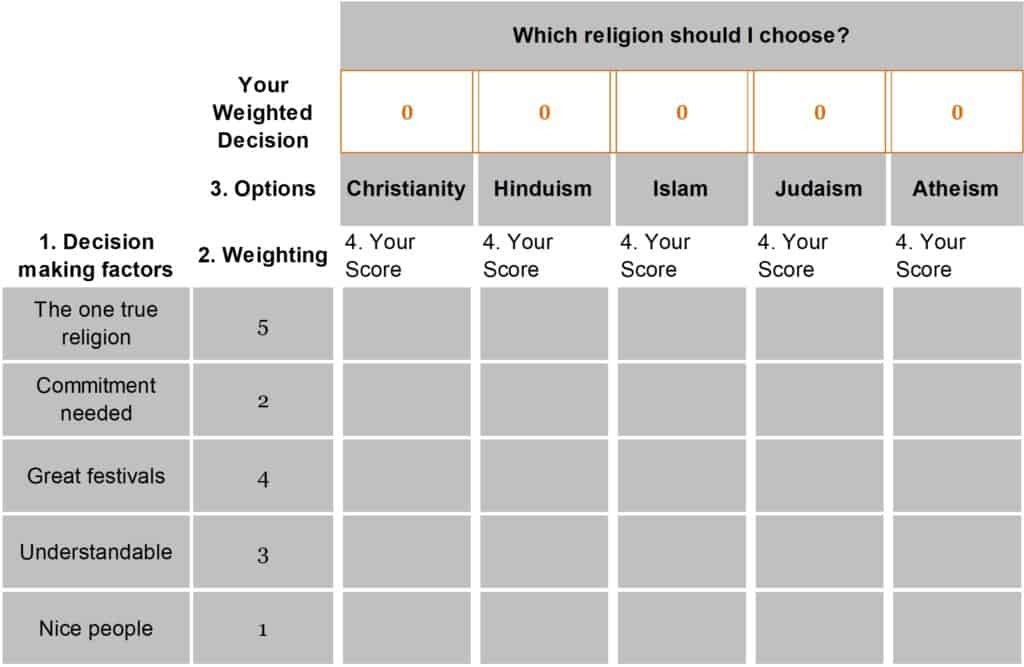Who will win the Champions League?

This blog was written a few years ago but the decision matrix can be applied to the Chapions league just as well today as it could several years ago. Download a weighted decision matrix template and pick your winners today.
The Champions League starts again tonight. Chelsea only won it what seems a few short weeks ago but we can’t get enough of the Champions League apparently. Money talks of course so the main contenders are the richest clubs in Europe: Man City, Chelsea, Real Madrid, Barcelona and Manchester Utd. Man Utd didn’t even qualify for the knock put stages last year and with Scholes and Giggs a year older I don’t give then much chance so replacing them on my short list for honours come the end of the season are Bayern Munich who always do well.
It’s actually harder to pick the factors that they are to be judged on in this weighted decision matrix than it is picking the teams! We’ve gone for “Manager” as the man at the helm is instrumental in getting the tactics right. Mourinho is a master of the Champions League and gets top marks for Real Madrid.
“Record” is the second factor I chose because if you’ve done it before you’ve got an inherent sense of belief that you can do it again. You know what we mean, if you managed to kiss the girl once you’ve a great chance of kissing her again! Man City have never come close so get the lowest score here whilst Chelsea do better than you may have expected following last season’s win.
Next we get onto football basics namely, “Defending” and “Attacking”. Chelsea won last year because of a solid defence and who’s to say they won’t do it again? It was a bit dull though so hopefully Real Madrid will live up to their attacking score of five.
Lastly we’ve factored in the “Desire” element. As my old PE teacher used to say, “If your hearts not in it boy, you won’t win it” or something like that. Man City get a five for this although that may be because the motivation is one of fear in not performing for the mega rich owners whereas Real Madrid get a five because they haven’t won the Champions League in so long they will be desperate to do so.
Anyway, that’s our thoughts so now it’s your turn. You can download a matrix here. Have fun and tweet the results to your friends.


